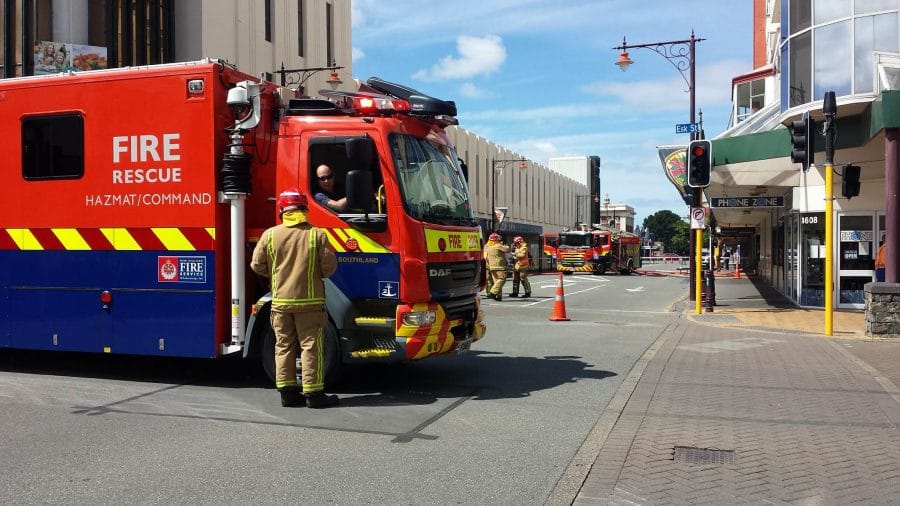
Invercargill firefighters are pleased to see the back of negotiations after 99.7% voted in favour of the new collective agreement.
FENZ Invercargill Station officer and union secretary Aaron Ramsey said one member of the Invercargill team was directly involved in the national negotiations, which saw an extra $100 million offered across the board from the initial proposal in July.
With interest rates rising and the cost of living getting higher, the 24% wage increases had provided some certainty moving forward, he said.
Firefighters went to great lengths to ensure the public knew what they were fighting for – ignoring their uniform policy and wearing ‘Fire Crisis’ t-shirts instead, talking to journalists despite a media policy in place, and nationally graffitied their fleet of trucks to gain attention.
Aaron said despite the new measures put into place, the staffing and fleeting issues would still continue, and it would take a long time for firefighters to get over their battle for fair pay and work conditions.
“There is a level of frustration and disengagement with some of the staff, because of the way we have been treated.”
The last time firefighters took action against workplace conditions and fair pay was back in the 1990s, and it went on for 11 years.
Firefighters received a 9.7% pay rise back then but there were supposed to be subsequent pay rises and that never eventuated.
He said that industrial action had broken some people down in the process, “but I’m not sure we’ll see people leave this time.”
All industrial action has been lifted, as of today, but there was still distrust for management that would take a long time to get over, he said.
Fire and Emergency NZ chief executive Kerry Gregory had the best intentions for the corporate arm of the organisation, but not operations, Aaron believed.
“There will be a considerable amount of work to do to rebuild trust.”
In a statement released today Kerry says professional firefighters’ ratification of a new collective employment agreement is a welcome and significant step forward.
“We are pleased that, with Government support, we have been able to reach an agreement which recognises and values our firefighters,” he says.
The agreement is centred around an uplift to base pay in acknowledgement of the changing nature of the emergency response role.
“Our aim has always been to do right by our people, while ensuring the sustainability of Fire and Emergency for all New Zealanders,” Kerry Gregory says.
“I want to acknowledge and thank everyone involved and impacted for their patience as we worked through this lengthy and challenging process alongside the NZPFU.
“I am optimistic the ratification of this agreement signals a step forward in rebuilding relationships.”
Aaron said plans were in place to increase the number of attendees at the four FENZ training courses throughout the year – from 24 to 30 people, which would help fix the issues in terms of staffing.
Two new Invercargill firefighters have just finished their training and were ready to start their new jobs, in time for the new collective agreement, “so that’s a positive for them,” he said.
Another important new measure put into place through the collective agreement was the $250/year per person blood screening in recognition of workplace cancers.

